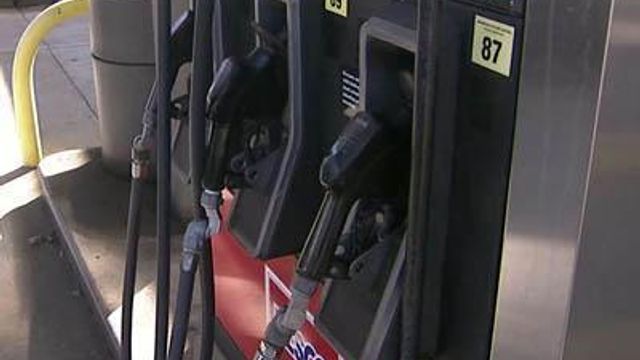Economist: Rising gas prices 'good sign'
The average price for gas in North Carolina is back above $3 a gallon, and observers expect it to hit $4 by this summer.
Posted — Updated"I used to live 45 minutes away, (but) I moved right next to campus," North Carolina State University senior Patrick Bowen said Monday as he spent more than $42 filling up his tank. "I cycle to class (now). I don't drive to class anymore like I used to."
A few pumps over, Joey Thompson was spending the boss' money to fill up the company car, but he lamented his gas-hungry SUV at home.
"It tears my pocketbook up every week. It's like $70 a week to fill it up. It's getting outrageous," Thompson said.
NC State economist Mike Walden sees a silver lining in higher gas prices, saying it means the US economy has regained its footing and is getting back up to speed.
"Gas prices going up is actually a good sign," Walden said. "$3 is normal. When we were down in the $2 (range), that was abnormal due to the recession.
"I don't see any thing diabolical, mysterious or underhanded here," he continued. "I think it's just a sign that the worldwide economy is better now than it has been over the last three years."
Oil industry analysts expect the price of gas to continue to rise, possibly reaching $4 a gallon by the summer. Although that might put a crimp in household budgets, Walden said the broader economy can absorb it without much problem.
"If they go up slowly, we can accommodate that," he said. "I think, even at $4 a gallon, that will not kill the economic recovery.'
He said rising gas prices will make alternatives like hybrids and electric cars more attractive to buyers.
Still, Bowen said he's already thinking about a Plan B to get from point A to point B.
"It's going to mean a lot more cycling and a lot less driving," he said. "At some point, you can't cut back anymore. You're sort of stuck."
• Credits
Copyright 2024 by Capitol Broadcasting Company. All rights reserved. This material may not be published, broadcast, rewritten or redistributed.






